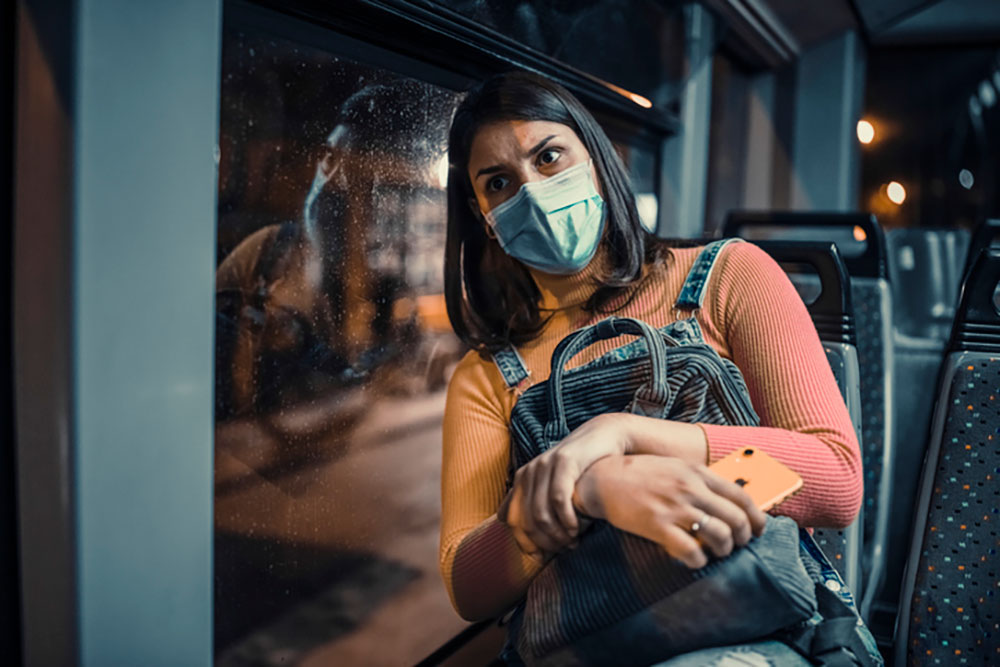
iStock
By Mary Carpenter
“WINTER is coming” is the ominous-sounding phrase weaving its way through autumn Covid news—like echoes of the oft-repeated threat in Game of Thrones. For now, U.S. Covid levels are inching up slightly, but hospitalizations due to Covid are increasing in the New York region, and the new subvariants of BA.5—BQ.1 and BQ.1.1 — appear more transmissible than earlier variants.
“Dr. Fauci is sounding the alarm about a pair of “pretty troublesome” Covid variants,” CNBC reported last week. Especially concerning is the “doubling time” of BQ.1 and BQ1.1 —which in the New York region account now for nearly 17% of infections, up from 11 percent two weeks ago—and BQ1.1 has already “sent cases soaring in Europe.”
That current Covid deaths number around 350 a day sounds like such a vast improvement over more than 3,000 a day at the height of the pandemic, but annually deaths come to around 130,000—compared, for example, to the under-30,000 annual average for flu deaths. According to a recent Kaiser Family Foundation analysis, Covid deaths among those 65 and over spiked during last summer—more than doubling between April and July 2022—and continue to remain high.
“The U.S. is woefully under-vaccinated and under-boosted,” according to Scripps Researcher molecular medicine specialist Eric Topol. Although the most recent bivalent Covid booster may not provide better protection than earlier formulations, all boosters add important layers of protection against serious illness, especially in the event of a winter wave.
What makes boosters even more important: The new subvariants appear better at dodging protective antibodies generated by breakthrough BA.5 infections, according to recent Chinese research. But vaccines, notes Carolyn Y. Johnson writing in the Washington Post, “teach the entire immune system [not just antibodies] to fight a virus.”
Overselling the new boosters, on the other hand, may create new problems. Microbiologist and immunologist John P. Moore at Weill Cornell Medicine in New York told the Post: “if you talk up these bivalent boosters as being some kind of super strong shield,” people will believe they can relax precautions.
New warnings of a “tripledemic” focus on three viruses: Covid, with cases rising in Europe and lately New York city; flu, which appears to be striking earlier this fall than expected; and RSV (respiratory syncytial virus). While RSV has infected almost everyone by age two and is most worrisome in babies under six months, the National Foundation for Infectious Diseases calls RSV in adults aged 65 and older “a hidden annual epidemic.”
Similar symptoms for all three are like those of a cold, including sore throat, runny nose and cough—but infection spreading to the lower respiratory tract, sometimes signaled by a “barking or wheezing cough,” can cause more serious illness. Mayo Clinic infectious disease expert Aditya Shah advises testing for anyone who has a respiratory infection that is getting worse—either by healthcare personnel or using the new Labcorp home P.C.R. test for all three viruses (free, mailed via Fedex, with results within two days).
Another worry with new variants concerns Evusheld, a key antibody treatment given to immunocompromised individuals, which appears to be ineffective, or “obsolete,” against the variant BQ1.1.
Good news, on the other hand, comes from wastewater sampling around the country—which can help predict possible spikes in Covid ahead of CDC data. For the past six weeks, testing by Biobot Analytics has shown the amount of coronavirus to be “basically flat.”
Wastewater sampling is one strategy in need of standardization, according to critics of government policies for this pandemic— and in preparation for the next — as are national standards for indoor air quality. And, University of Pennsylvania bioethicist Ezekiel Emanuel told the Post, “We can’t let this moment pass with so few structural substantive, institutional improvements.”
The government’s focus on individual decision-making as its current Covid policy is another target of criticism. Said Cecilia Tomori, director of global public health at Johns Hopkins School of Nursing: “When you make a rhetorical choice like [CDC director Rachelle Walensky recently calling Covid] ‘the pandemic of the unvaccinated,’ you’re really shifting the blame.”
Some experts have, nevertheless, updated suggestions for coping with the newer variants to account for their shorter incubation periods. UCSF infectious disease specialist Peter chin-Hong told the Post: “if you go to a packed bar on a Friday and don’t have symptoms by Monday, it’s unlikely you have the virus.”
Other advice concerns the week before traveling: “Consider a mini quarantine,” limiting time spent in crowds and masking in indoor public spaces, as well as masking “while traveling…even if you’re the only person on a plane or train wearing one.”
For now, individual choice is all we’ve got. I have not been infected with Covid, have had five shots and remain reluctant to eat in crowded public places—with exceptions for family and friends. When visitors arrive from New York or elsewhere to stay with me, I have Covid tests at the front door for each of us to take. Recently, I have joined a new group, the Coviders, and we convene on social media to talk about how we are “still COVIDing.” Still, I fully expect to get Covid any day now.
—Mary Carpenter continues to update us on the latest news from the Covid-19 front.

Thanks, Mary, love that you referenced the wastewater sampling. This is such a great, very objective, Public health tool to understand prevalence.